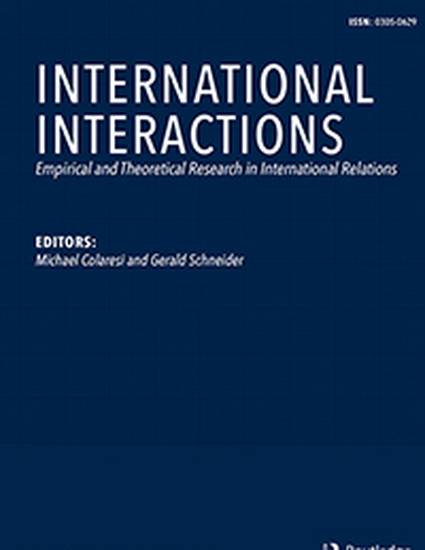
Recent work has begun exploring the effects of foreign military deployments on hoststate foreign policies. However, research mostly focuses on dyadic relationships between major powers and host-states, ignoring the broader regional security environment of host-states. We develop a theory of spatial hierarchies to understand how security relationships throughout the region surrounding the host-state affect hoststate foreign policy. Using data on US military deployments from 1950–2005, we show that regional security considerations condition how host-states respond to the deployment of military forces to their territory. Consequently, regional analyses are fundamental in understanding monadic and dyadic decisions about security, alliance behavior, and conflict.
This is an Accepted Manuscript of an article published by Routledge an imprint of Taylor & Francis Group in International Interactions in the May-June 2017 issue, available online at doi: 10.1080/03050629.2016.1191482
Available at: http://works.bepress.com/julie-vandusky-allen/3/
